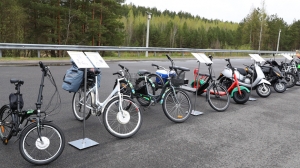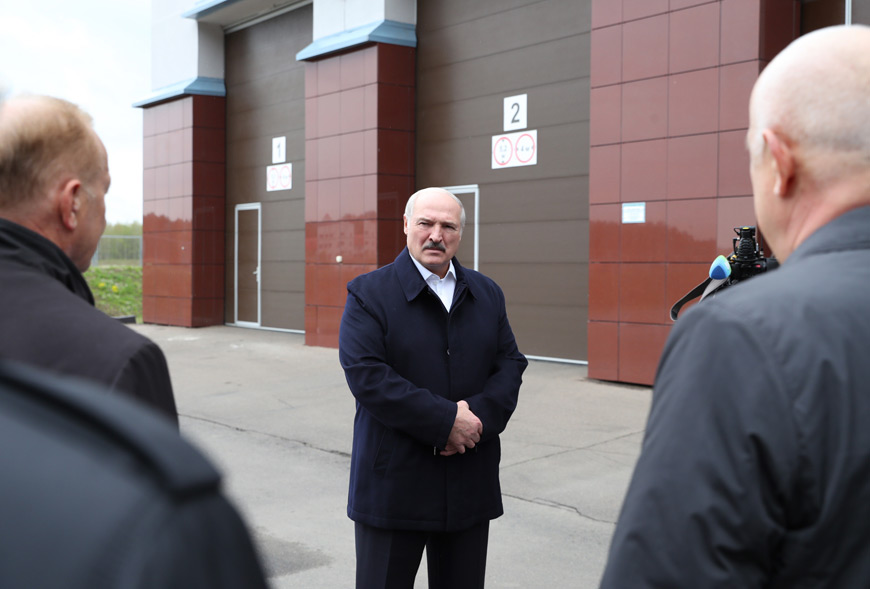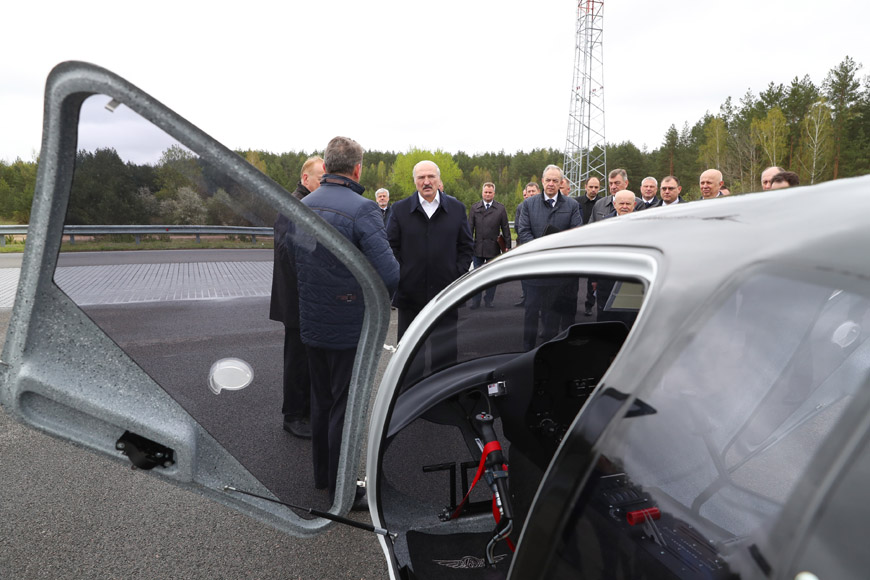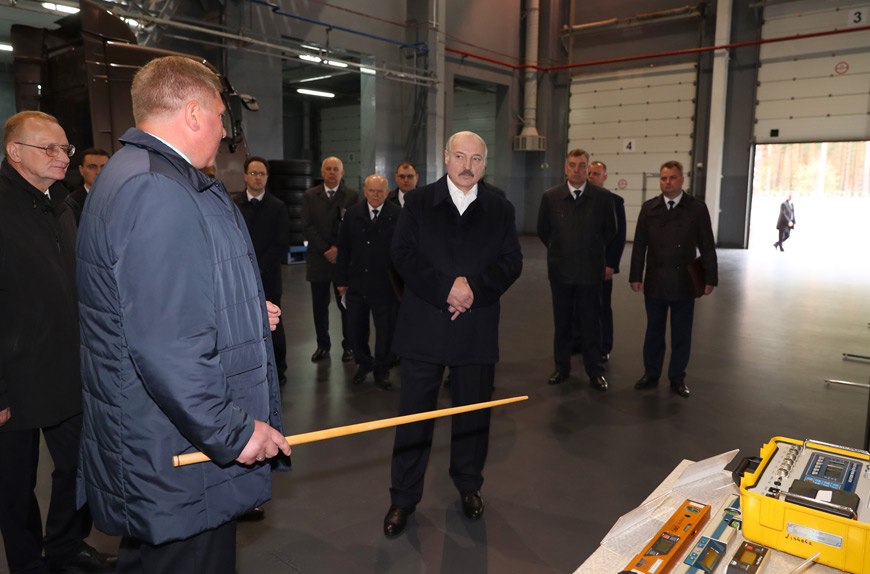Belarusian companies to produce component parts for electric transport

MINSK, 5 May (BelTA) – Belarusian companies will focus on the production of component parts for electric transport, which the country lacks, Belarus President Aleksandr Lukashenko said as he visited the testing area of the National Academy of Sciences of Belarus on 5 May, BelTA has learned.

The head of state was reported that Belarus has started producing many necessary components but this is not enough.
Aleksandr Lukashenko instructed to deal with this issue in a comprehensive way. “You have to determine who is going to make batteries, engines and so on. The enterprise will refocus their operations. We need prototypes that you will design. Then we will need to explore the markets," the president said.

Vladimir Gusakov, Chairman of the Presidium of the National Academy of Sciences, reported to the head of state that all his instructions regarding the development of electric transport are under the strictest control and are executed without disruptions. In fact, a new scientific school has been set up, necessary competences have been accumulated. This group of specialists and scientists is able to solve any tasks in the electric transport sector. The necessary infrastructure has also been developed.
“The Academy of Sciences has set up an assembly line for electric car components, an assembly line for batteries, and a line to produce the latest examples of domestic storage devices - lithium-ion ones. We are also working on our domestic graphene, hybrid devices. At present we have a fully domestic component base [of an electric car], except for the body,” said Vladimir Gusakov.

Works on electric transport are carried out in various directions. These are not only passenger cars, but also cargo-passenger vehicles and minivans. There has been developed a sample of an ice machine with an electric motor drive. There have also been developed prototypes of electric bicycles and electric scooters. There is an experimental line to assemble lithium-ion batteries for electric vehicles. Necessary infrastructure is being developed for the use of electric transport, including the production and installation of charging stations, is being created. Electrical technologies are also applied in the development of unmanned aerial vehicles.













